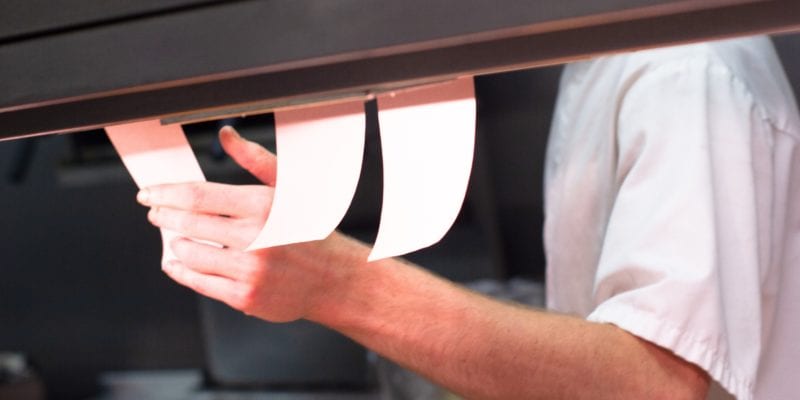Skift Take
A "gig" marketplace for restaurant work is a great way for businesses to fill gaps in their schedules, especially at the last minute.
— Kristen Hawley
On a busy Friday night during the 2018 holiday season at the San Francisco restaurant Frances, chef and owner Melissa Perello faced a potential disaster. A dishwasher hadn’t shown up for work, and she was already down a person in the kitchen. “I got on the Pared app,” she recalls. “And 35 minutes later, a dishwasher walked in the door.”
Perello’s predicament is a long-standing problem for the industry, and it’s only getting worse. The number of full-service restaurants in major cities is increasing — in New York it rose to 9,809 in the third quarter of 2018, from 8,563 in the third quarter of 2016 — but millennials are less inclined to commit to a full-time schedule. This makes dishwashers harder to hold on to. Staffing problems ultimately affect diners, who might be wondering why their roast chicken is taking so long to come out. According to statistics from the scheduling app 7shifts, the average tenure of a restaurant employee is one month and 26 days.
The Pared app, designed to solve this problem, was introduced in December 2015 by Will Pacio, a Stanford graduate who cooked at the French Laundry, the legendary Napa Valley restaurant, and Dave Lu, a veteran of Apple and Yahoo! who founded fan club network Fanpop. At the start, Pared was a Bay Area-based program for filling such jobs as dishwashers and prep cooks. It’s since grown to include many more positions, including servers, baristas, and even oyster shuckers. In March 2018, Pared expanded to New York, where it now has several high-profile clients, including Jean-Georges Vongerichten, Tom Colicchio, and Tao Group. Pacio and Lu are expanding to Philadelphia and Washington, D.C., by the end of the year, with the goal of being in all the major U.S. metropolitan markets by 2020. “Every day, I beg them to come to Los Angeles,” says Perello, who’s opening a restaurant, M. Georgina, there in the summer.
For employers, Pared’s benefits are easy to see: The cost of losing and replacing an hourly worker is $5,864 per employee, according to the Cornell School of Hotel Administration. The 2016 Bureau of Labor Statistics estimates that the restaurant sector experiences annual employee turnover of 73 percent; over the course of 16 months, a restaurant can expect to lose its entire staff.
The app isn’t meant only for employers. It’s also designed for kitchen staff who have trouble keeping regular schedules because they’re juggling multiple gigs or have child-care, transportation, or other difficulties. The average annual income of a restaurant cook is $26,400, according to 2018 BLS figures; for dishwashers it’s $23,100. “These people are working crazy schedules that they can’t control,” Lu says. “If they miss a day, they usually get fired. The gig economy has eluded them.”
Using Pared is straightforward: Potential workers submit a work history, attaching at least two references. The app’s staff of about 50 uses a virtual reference-check system to vet their backgrounds. Pared then uses algorithms to match applicants to vacancies that correspond to their skills. The company says it has 10,000 approved contractors in its database. “Our pros make $20 an hour, which is annualized to about $41,000,” Lu says. “One pro made $9,000 a month.” He says the cut paid to Pared comes from restaurants and not workers. Pared is a privately held company; Lu declined to disclose earnings.
There are some drawbacks to the model, Perello says. “A Pared employee might come in and say, ‘I’m getting paid $20 an hour,’ and your full-time guy will think, Why am I only making $16? They don’t think about the taxes or the health-insurance coverage that they’re getting.” So the full-timer bolts, and Perello is down a worker.
Wade Moises, executive chef of Rosemary’s in New York, found the app costly. “We haven’t used Pared in a while,” he says. “It was a great help when we were desperate, but we also spent more money than we would normally for a job that, in the past, someone would just jump in and cover.”
Still, Moises recognizes it’s a good deal. “We pay no labor taxes, OT, sick pay, vacation time, or health insurance. Just a flat hourly,” he says. “And if you’re a Pared employee, you write your own schedule. Thinking about Pared now, I’m not sure if I should fire my whole staff or quit myself.”






